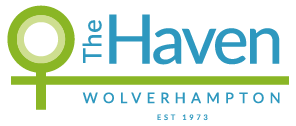IDVA (Independent Domestic Violence Adviser/Advocate)
The main focus of an IDVA is to address the immediate safety needs of women who are deemed at highest risk of harm as a result of domestic abuse. Our IDVAs support women who have been subjected to domestic abuse to become safer, as soon as possible, and to stay safe.
“When someone discloses about an abusive partner/ex-partner/family member – they may need to engage with a whole host of confusing and sometimes conflicting services: the courts, probation, housing, mental health, children services, substance misuse. It is never as simple as ‘just leave’.
IDVAs are their rock; they navigate these services. They work with local specialist services to provide longer-term support for women. They don’t talk for victims of domestic abuse, but in partnership with them.” (Safelives)
ISVA/ChISVA
Helpline Advisers
Key Workers
Counsellor/Therapist
Children’s Worker
Counselling , Therapy and Support Programmes
We support women and children who present with a wide range of issues ranging from depression and anxiety to more complex needs like Post Traumatic Stress Disorder and severe trauma reactions to their experience.
Through our counselling services we are able to explore all of these issues with. Deeper issues with an individual can be addressed via the empty chair (Gestalt therapy), encouraging the client to ‘talk’ to the one person they hold so much in for. We offer guided therapy that is particularly useful for young people and assists with working on thoughts and behaviour associated with feelings. The feminist counselling perspective provides counsellors with the opportunity to guide clients based on their personal experience, assisting in coming together with those who have been through similar situations. Psychodynamic therapy allows deeper investigation into the childhood and historical issues, discovering the effects those may have on the here and now. Jungian therapy allows unconscious elements of the psyche into conscious thought for further discovery and meaning searching. And finally, Transactional Analysis assesses and recognises those behaviours that relate to parent adult and child roles, which can be so significant for some clients who can be ‘stuck’ in a childlike state for example.
Ultimately – these approaches coupled with the person-centred approach means that our clients are benefitting from the counselling they receive and are experiencing improvements to their mental health and general wellbeing!
Rape & Sexual Violence Hub
The Haven delivers specialist support to women subjected to sexual abuse and violence. Our dedicated team with specialist knowledge that includes child sexual exploitation include a qualified ISVA (Independent Sexual Violence Advisor) to support adult women and a ChISVA to support children and young people who have experienced sexual abuse or exploitation at any point in their life. We can provide women only safe spaces and support groups. We can also provide support through court proceedings. This service is available to all women and girls and you can make a referral via email at referralpoint@havenrefuge.org.uk.
Other Harmful Cultural and Religious Practices
- So called ‘honour-based’ abuse where women are subjected to violence and abuse in the name of ‘upholding honour’
- Forced marriage is the physical or emotional pressure to enter into a marriage you do not wish to enter into. This may include threats against physical safety or emotional and psychological pressure such as bringing shame to your family (linked to so called ‘honour-based’ abuse). Forced marriage is illegal in the UK.
- Female Genital Mutilation (FGM) involves the partial or total removal of external female genitalia or other injury to the female genital organs for non-medical reasons. It is undertaken mostly from birth to the age of 15. FGM can have lifelong physical impacts on women and girls, and can leave victims with severe emotional trauma.
- Religious abuse (or spiritual abuse) can vary in forms but is the practice of subjecting individuals to abuse and violence under the guise of religious practice/norms.
- Breast ironing is the practice of using heated objects to pound and massage the chests of pubescent girls to stop their breast tissue from forming. This often happens over a long period of time, sometimes years. As with FGM, breast ironing can leave the victim facing lifelong physical and emotional trauma
The Haven can offer support to women who have been subjected to any of the above practices.
Work in Schools
We have developed programmes aimed at preventing young people from becoming perpetrators and victims of abusive relationships. Our aim is to introduce young people to what is acceptable within a relationship and what is not acceptable to help them understand what a healthy relationship is and what consent means within a relationship.
Appreciate Me: developed to create awareness about enforcing healthy relationships while also addressing concerns such as online bullying & sexual exploitation.
MENgage/EmpowHER: developed to address the issue of violence against women and girls (VAWG). EmpowHER helps young girls to explore social, emotional and interpersonal skills for healthy relationships based on equality. MENgage helps young boys to focus on the role they can play in ending violence against women and girls. Both of these programmes encourage young people to challenge their beliefs around gender stereotypes and patriarchal ideologies about masculinity.
A donation or fundraising would be expected to cover staff costs and travel. For information and booking enquiries, or to request a callback please email training@havenrefuge.org.uk
